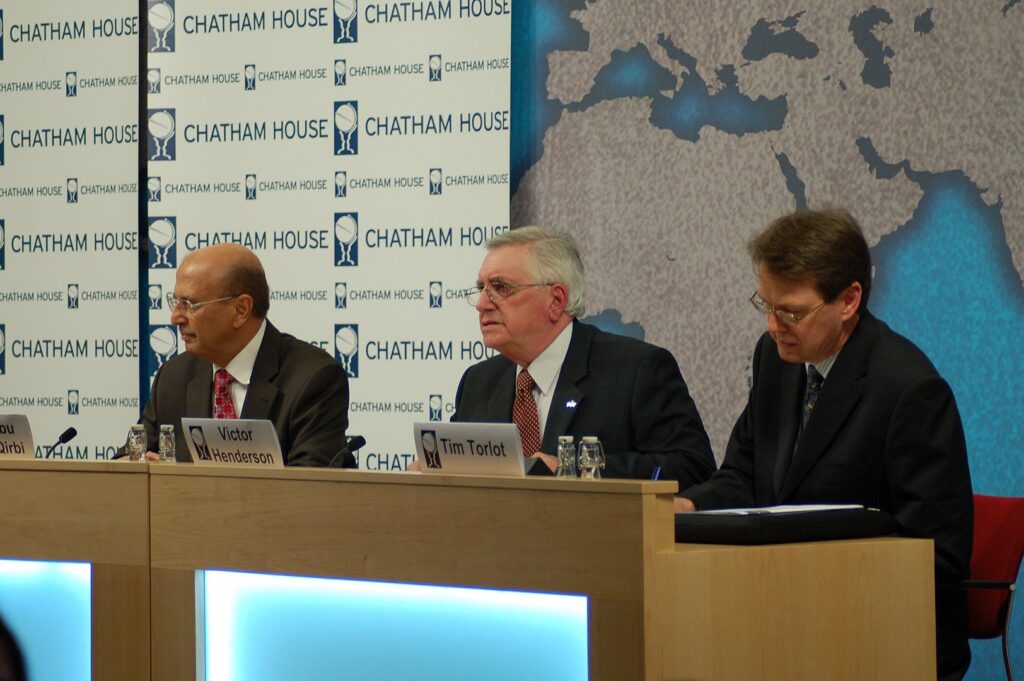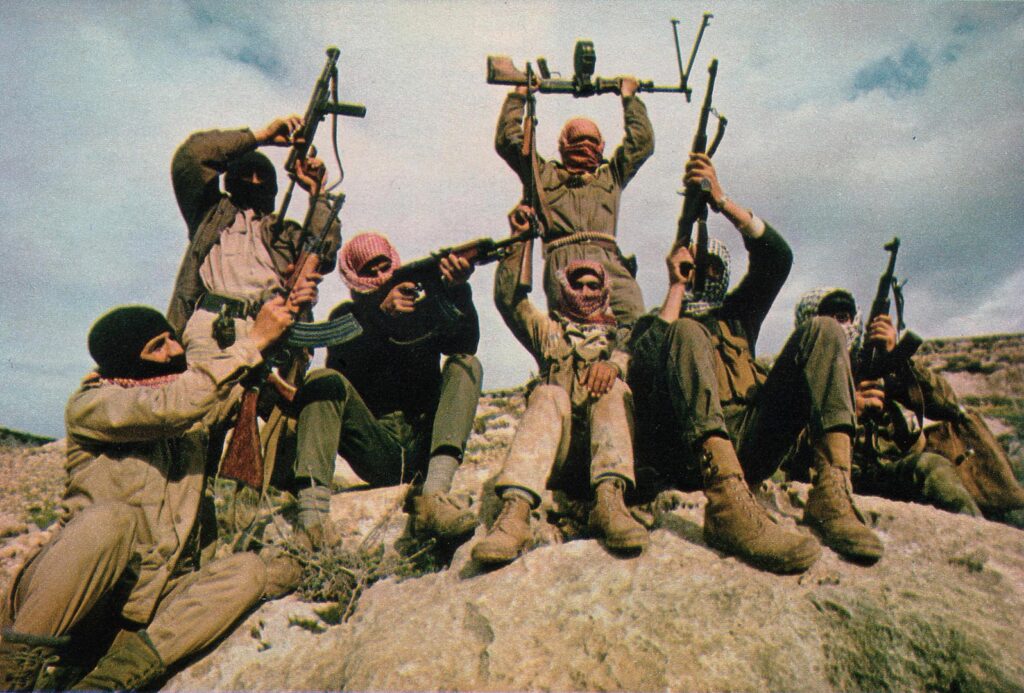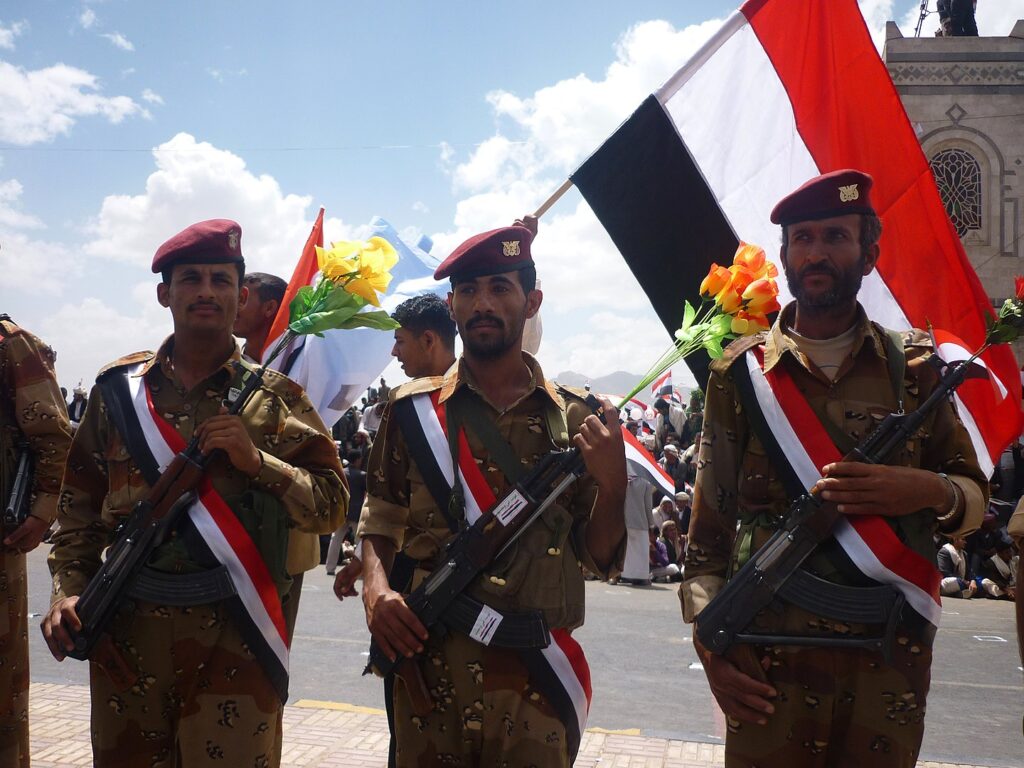It should come as a surprise to precisely no one that the word terrorism is a hugely emotive one.
After all, it has the root ‘terror‘ in it. And ‘terror‘ does not exactly elicit positive feelings, now does it (unless you really like roller coasters – which I most definitely do NOT!)?
Furthermore, we are still in the midst of what I and others call the ‘post-9/11 period‘, i.e. the modern age of terrorism. The events of that Tuesday morning in New York and Washington 20 years ago are still seared in the minds of many and have had a disproportionate effect on what we collectively think about terrorism, a phenomenon which was not born in 2001 but which has assumed a (distended) large part of how we see conflict.
We would all agree, or at least I assume we would all agree, that the group responsible for 9/11, i.e. Al Qaeda, is indeed a terrorist organisation. It was inspired by a mixture of ideology, religion and politics and carried out a massive act of violence in which nearly 3,000 were killed. If that does not qualify as an act of terrorism, nothing does.
Moving beyond that, it gets murkier. Some groups very similar in design and goals to AQ, such as Islamic State (ISIS) are probably also undeniably seen as terrorist in nature. Others, like Al Shabaab (AS) in Somalia or Boko Haram (BH) in Nigeria, often get labeled as ‘militias’ which, to my mind at least, affords them an aura of legitimacy (and very wrongly so in my view). Beyond that the waters are even more opaque (Proud Boys? Antifa? QAnon?Incels??).
You may understand, then, why the decisions to call one group ‘terrorist‘ and another something else are often hard to fathom. There are always personal biases to consider as well: we all have them. Similarly, states can be behind campaigns to have certain entities termed terrorist in nature in order to further their own plans and schemes. In the end, terrorism is often in the eye (or brain) of the beholder.
Take the Houthis, for example.
This is a Shia group which took shape in the 1980s in northwestern Yemen, in an area known as Sa’adah. They are Zaidis, also known as ‘fivers’, a subset of Shi’ism, named after the number of imams they recognise (essentially successors to the Prophet Muhammad). Zaidis are indigenous to that part of Yemen and actually controlled it into the 20th century.
Former Yemeni President Saleh was a Zaidi, although his corrupt practices alienated his co-religious partners who then gathered around a charismatic leader named Hussein Al Houthi (hence the term we use to describe them) and engaged in military action. To make a long story short, the Houthis eventually took over the capital of Yemen, Sana’a, in 2015 and the country has been beset by civil war ever since.
The complicating factor here is Saudi Arabia (and to a lesser extent Iran). The Saudis have never met a Shiite they didn’t hate – look at their history of abuse with its own Shia in the so-called Eastern Provinces on the Persian Gulf – and could not countenance the dominance of a Shia group on its southern border. Hence, the KSA and the UAE invaded Yemen, using the excuse of Iranian influence on the Houthis (like them, Iran is Shia, albeit twelver, not fiver, in nature: it gets complicated).
The most significant result of all these military moves is that Yemen is a humanitarian disaster. According to UNICEF “Yemen is the largest humanitarian crisis in the world, with more than 24 million people – some 80 per cent of the population – in need of humanitarian assistance, including more than 12 million children.” The situation is indeed dire and getting worse (well, at least the Emiratis pulled out in 2020, leaving the Saudis as the only aggressors under Muhammad bin Salman – MBS, the Crown Prince of the Kingdom).
Which brings us back to the Houthis. What are they? A government? A militia? A religious group? A terrorist organisation? All of the above? To the surprise of no one the Saudi(-influenced) press never fails to call them terrorists: indeed, the Houthis have carried out attacks in Saudi Arabia.
The Saudis want to dictate the world’s view of the Houthis. In fact, outgoing US Secretary of State Mike Pompeo, a Saudi ally, called them terrorists the day before current President Joe Biden took office: the new administration reversed that decision immediately. The Saudis want the Democratic White House to go back to the usage of the previous Trump administration.
What’s the real story?
That same Saudi-influenced media now claims that the Houthis are tied not just to AQ but to ISIS as well (both groups have members in Yemen). The Yemeni government – the part not run by the Houthis – has submitted a memorandum to the UN Security Council in which it claims the Houthis are not only ‘working with’ AQ and ISIS, but freed 252 AQ prisoners, including one of the people behind the USS Cole bombing in 2000. This strikes me as dubious at best.
In truth, the Houthis are believed to have sent drones into Saudi Arabia, including into areas hosting the Kingdom’s oil industry. The Saudis have tried consistently to drum up support from its allies to deal with the Houthis as terrorists: the Biden administration, which has been uncharacteristically critical of the Saudi regime, unlike its predecessor which fawned over MBS in what looked like a high school crush, has expressed concern over these developments.
We continue to be alarmed by the frequency of Houthi attacks on Saudi Arabia. Escalating attacks like these are not the actions of a group that is serious about peace.
White House press secretary Jen Psaki
So, what to do?
That the Houthis receive aid from Iran seems to be certain: Iran does this with other nations with which it shares the Shia faith. This relationship is most probably not as important as Iran-bashers make it out to be, however. That Saudi Arabia made the ill-fated decision to invade Yemen six years ago is the REAL issue and the one move that has led to the current humanitarian nightmare, with of course average Yemenis suffering as a consequence.
The Houthis may not be helpful players but they are also most likely not the international terrorists the Saudis make them out to be. Once again, it is crucial to question the source of information before rushing to conclusions. Simply stated, whatever the KSA says about the Houthis is grossly tainted by their antithesis to Shia Islam. None of this should be seen as support for Houthi actions, for what it is worth. Their activities are hurting average Yemenis as well.
In the end the civil war has to come to a conclusion to prevent more suffering and death. Calling the Houthis terrorists contributes nothing to this goal.
Read More About the Situation in Yemen

April 26, 2010: Attempted assassination of UK Ambassador to Yemen
On April 26, 2010 an AQ terrorist dressed as a schoolboy carried out a suicide attack near the convoy of the British ambassador to Yemen, killing only himself.

February 22, 1972: Terrorists hijack flight and demand ransom in Yemen
On February 22, 1972 the Popular Front for the Liberation of Palestine hijacked a Lufthansa flight and demanded a $5 million ransom.

January 18, 2020: Houthi terrorists shell mosque in Yemen
On January 18, 2020 Houthi terrorists launched an attack on a mosque in Yemen, killing 83 soldiers and injuring 148 during evening prayers.
‘
